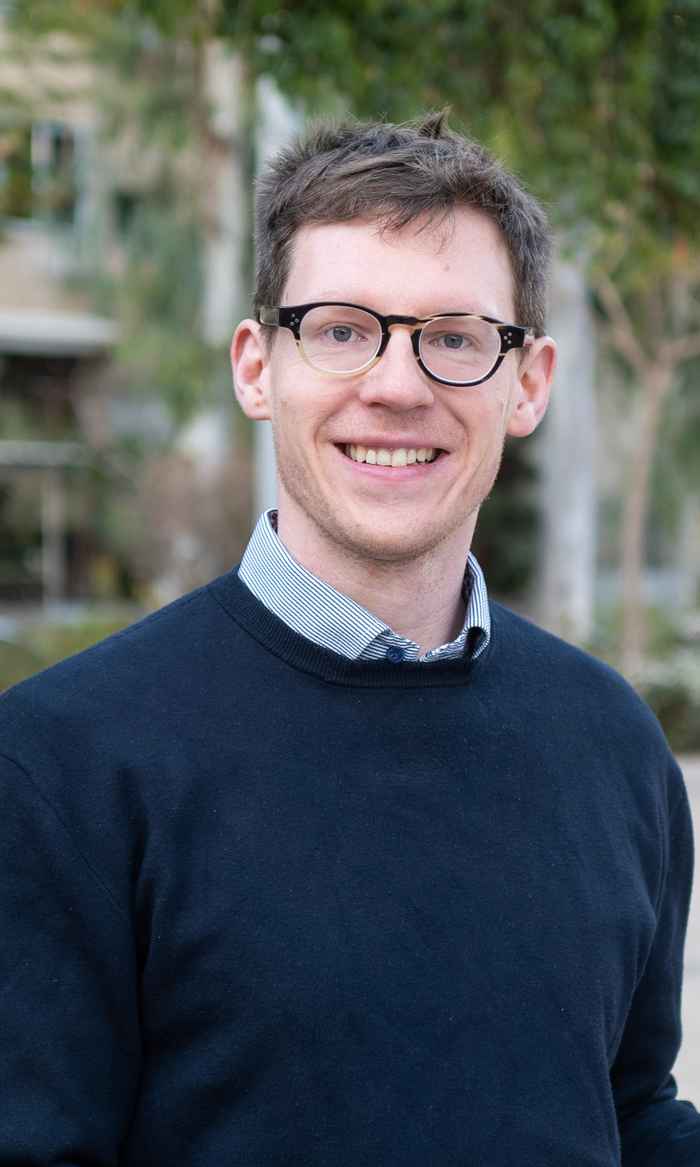Value chains and human-rights compliance
15 March 2023

Law should not be what it seems
Hendrik Eller completed his PhD in law in Germany, between Cologne and Humboldt, on the blind spots of law in a transnational setting, and is qualified to practice law in Germany. After taking a postdoc position in Israel, he joined the Amsterdam Center for Transformative Private Law (ACT) in 2020 where he specialises in economic law, comparative law, and teaches transnational business regulation. Hendrik Eller’s perspective on these fields takes law as a variable of social ordering that is in constant flux.
“While legal education often teaches law as it is, my interest went quite quickly into how law changes, what processes change, and what this change implies,” he says. For him, law is not a series of commands ‘in the books’, but about seeing both physical and informational infrastructures as ordering devices that give shape to global value chains, much more than traditionally viewed single actors. “Many of the issues we have today with the complexity of global supply chains,” Hendrik Eller claims, “…are brought about by the law that surrounds them. So, a multidisciplinary approach he claims might help tackle these problems. Maybe in the way of slow, multidisciplinary reflection, perhaps… I have always tried to look for these kinds of spaces in the past. In my PhD and post-doc too: the idea of multidisciplinary research institutes and having the exchange of ideas across faculties and having these institutions isolated from everyday faculty business and grant concerns.”
The power of coffee rooms
In 2022 Hendrik Eller was given a 3-year early-career research NWO grant. One of his ambitions was to get some thinking space and collaborative opportunities to start the project. With IAS being a space of connection and consolidation where the temporality of research and research politics are not felt as imminent, getting a fellowship at IAS became the perfect option. To adopt this framework of ‘slow-science’ around grand questions at IAS and be connected with other researchers from other disciplines gave Hendrik Eller direction on how to utilise the grant.
“The incubator spirit of IAS bringing people together materialises, and the way these connections arise is very organic and unforced, which is really nice - we already have two grant applications in collaboration with people who just sat in the coffee room of IAS,” he says. To Hendrik Eller, there is something that IAS does very well at bringing people working in very different issue areas together across commonalities, looking at problems in relation to complexity, social entanglement, dynamics, processes, and systems thinking.
“Not only the quality as such but the originality of the types of events that take place, and being in a place where every day there are different groups gathering, having different kinds of events, and all having an open-door policy,” Hendrik Eller remarks. This facilitates unexpected and unconventional perspectives, in a way that would not be possible without exposing all kinds of researchers to each other through such events. “There are certain ways of asking questions that make it valuable to joining in for me - as someone thinking about industrial global value-chains - to listen into discussions on urban mental health.”
Digging deeper into digital tools
Hendrik Eller envisions bringing law into debates about grand societal challenges, at a very general level. He aims to strengthen within law this narrative of thinking systemically, identifying complexity, and taking it as a starting point - in the aim of overcoming, as he claims, this somewhat obsession with actor-centrism in law. How is it possible that companies can create systems of such complexity that it is legally impossible to hold them accountable, as visible in problems with climate change and other value-chain processes?
“How does a multi-national company like Adidas manage its global supply chains and through what forms of digital governing devices and [digital] tools?”, asks Hendrink Heller.
One of the aims of his projects is to study how in this form of algorithmic governance and software mapping of the value-chain, aspects of human-rights compliance and sustainability are being presented and constructed and brought to the attention of relevant groups. The aim is to bring together software developers working in the intersection of supply-chain management and legal regulation compliance to discuss how they think certain human rights aspects are illustrated and constructed in their work on value-chain software processes.
“The project looks into how legal tools structure the complexity of global value-chains and how in understanding this complexity we can find better ways to make global production more sustainable and resilient; the concrete angle I take within this is the role of software and algorithmic governance in bringing together all sides of it.”
This type of software-centric perspective is new to Hendrik Eller’s work, as he usually works on socio-legal domains. He sees IAS as a valuable environment to learn how to communicate effectively and connect with software developers with the aim of completing his project.